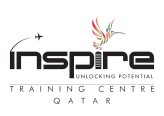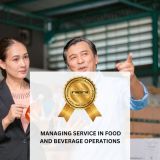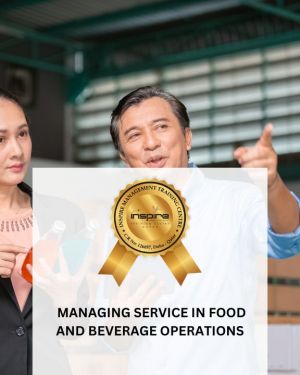Course Description:
Provides a basis for understanding hospitality accounting concepts and procedures, the processing of hospitality financial data, and the flow of financial information in the accounting cycle that results in the production of financial statements.
Objectives:
At the completion of this course, students should be able to:
1. Define and describe the purpose of accounting.
2. Explain why financial statements are necessary and why the study of accounting is
important to a hospitality management career.
3. Describe the major forms of business organization and the advantages and disadvantages of
each.
4. Explain what hospitality entrepreneurs should know before deciding to buy a franchise.
5. Define and describe bookkeeping and double-entry accounting, and identify common
bookkeeping accounts and tools.
6. Use three basic questions to analyze business transactions, and use debits and credits to
record them.
7. Identify the major financial statements and explain their contents and when they are issued.
8. Explain why readers of financial statements must be aware of the money illusion.
9. Describe the advantages and potential disadvantages of using a computerized accounting
system.
10. List factors to consider when selecting a general ledger software package.
11. Explain the accounting cycle and the difference between accrual and cash basis accounting.
12. Describe the income statement and identify the accounts used to prepare an income
statement.
13. Explain the accounting procedures for the perpetual inventory system and the periodic
inventory system.
14. Identify and describe the asset, liability, and equity accounts used to prepare a balance
sheet.
15. Explain the preparation and purposes of common-size and comparative balance sheets.
16. Describe the major components of a restaurant income statement.
17. Review and explain the various food sales and beverage sales analysis statistics.
18. Identify the sections that make up the Summary Operating Statement.
19. Discuss the financial statement package and the external statement of income.
20. Explain the purpose, preparation, content, and format of the statement of cash flows
21. Define responsibility accounting and explain how it affects a manager’s role and duties.
22. Describe variable, fixed, and semi-variable expenses, and explain the breakeven point and
profit target formulas.
23. Define and apply the concept of price elasticity of demand in a hospitality setting.
24. Identify the elements of revenue and describe how changes in one element may affect revenue.








